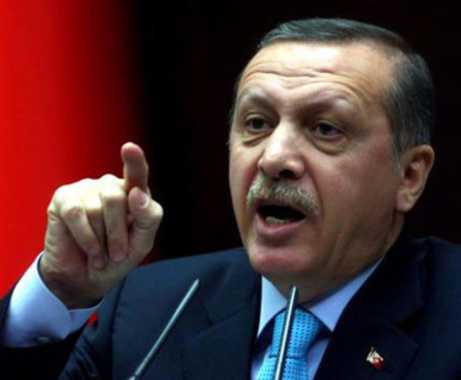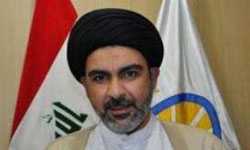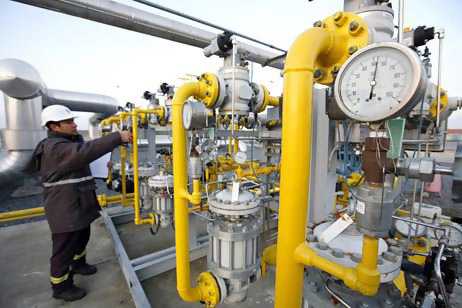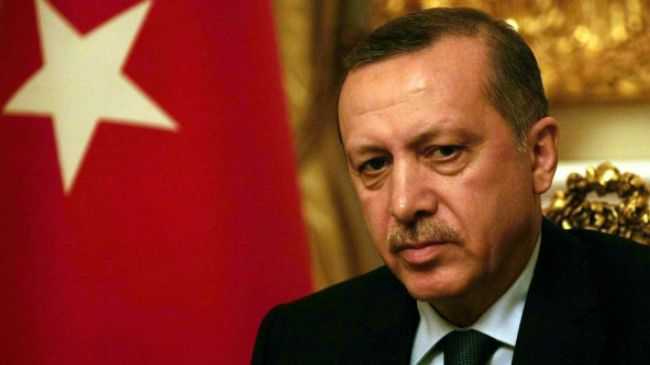Abdulhakim Bashar, the first president of the Kurdish National Council (KNC) and the secretary of the Kurdish Democratic Party in Syria (Al Party) Photo: Rudaw
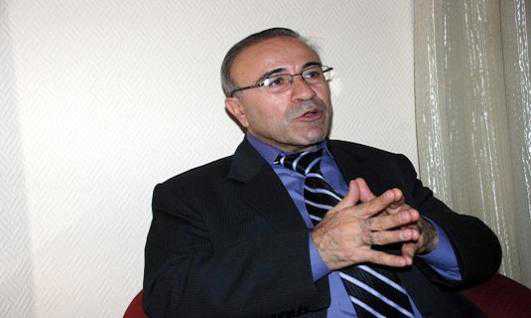
ERBIL, Kurdistan Region – Abdulhakim Bashar, the first president of the Kurdish National Council (KNC) and the secretary of the Kurdish Democratic Party in Syria (Al Party), who directs his party from Erbil, accuses Turkey of supporting Arab fighters against the Kurds in Serekaniye (Ras al-Ain).
He told Rudaw that by doing so Turkish intelligence wants to harm the Kurdish cause, but that by backing radical Islamists on its border Turkey is threatening its own future security.
Rudaw: Why have the Arab fighters directed their heavy weapons towards Serekaniye? Does capturing Remelan have something to do with attaching Serekaniye (Ras al-Ain)?
Abdulhakeem Bashar: Serekaniye is an alarm that shows the existence of groups that are hostile toward the Kurds and want to eliminate their cause. Some terrorist groups have come to Serekaniye after the withdrawal of the Syrian regime from that town. They are easing the pressure on the Syrian regime. If these groups really care about fighting the Syrian regime, then they should go and fight in Damascus and Aleppo where the real fight is. These fighters are making a big mistake by fighting in Serekaniye, because by doing so they help the Syrian regime and create a Kurdish-Arab war. This will change the path of the Syrian revolution dramatically. There is an Alawite-Sunni conflict in Syria, and if a Kurdish-Arab conflict is created, then the Syrian regime will never collapse. For these reasons, I believe that these groups are either very narrow-minded or they are working for the Assad regime. I hope this issue will be solved politically; otherwise, as the AI party, we will have a different reaction.
Rudaw: Will you send your armed forces to Serekaniye?
Abdulhakeem Bashar: We will send our forces to Serekaniye if deemed necessary. This is a sacred duty, for which we will have to sacrifice.
Rudaw: Do you believe in the existence of external influence in this issue?
Abdulhakeem Bashar: We treat Turkey as a friendly country, but unfortunately it facilitates the movement of the Arabs into Serekaniye. This means that Turkey wants to harm the Kurdish cause. But, this will only increase the problems for Turkey, because it will complicate the Kurdish issue inside Turkey, and the radical Islamists will settle on the Turkish border. The Turkish government might not be involved in this, but according to the information we obtained, there are signs of involvement of the National Intelligence Organization (MIT) in this issue.
Rudaw: But isn’t the MIT under the control of the Turkish government?
Abdulhakeem Bashar: A group inside the Turkish government is involved. But this does not mean that there is a political decision behind it. I can’t say for sure which group it is, but this action surely does not serve the interests of Turkey, nor ours. If Turkey were truly a friend of the Syrian revolution, then supporting these groups would be a mistake. If it were a friend of the Syrian Kurds, then supporting these radical Islamists would again be a mistake, as well as a threat to the border security of Turkey.
Rudaw: Have you tried to contact the Turkish consulate in Erbil to convey your grievances to the Turkish government?
Abdulhakim Bashar: No. But a woman from the Turkish consulate contacted me and asked me questions about this issue. I told them that the situation was very bad and that we might change our way of thinking about Turkey if things continue in this manner.
Rudaw: Do these groups seek to control only Serekaniye, or do they have other goals?
Abdulhakim Bashar: I believe that these forces cannot control Serekaniye, unless it is done over the dead bodies of the Kurds. This will become a national war for the Kurds and all Kurds shall support it.
Rudaw: What kinds of affiliations do these radical groups have?
Abdulhakim Bashar: These armed groups are connected to Jabhat al-Nusra and Ghuraba al-Sham. The United States branded the former as a terrorist group. Ghuraba al-Sham was previously called Jund al-Sham, which was a terrorist group and created by the Syrian intelligence agency. This group carried out 80 percent of the terrorist attacks in Iraq. The leader of this group was called al-Qaaqaa and was killed in Aleppo three years ago. They later changed their name to Ghuraba al-Sham, but they are still controlled by the Syrian regime.
Rudaw: How long will the conflict in Serekaniye last?
Abdulhakim Bashar: If the Syrian National Coalition (SNC) intervenes, then the conflict in Serekaniye will stop. But, if things continue in this way, this conflict will worsen and become a war between Kurds and Arabs.
Rudaw: How is the situation in west Kurdistan after receiving humanitarian aid?
Abdulhakim Bashar: It has become better. We thank the Kurdistan Region very much. But, the distribution of the humanitarian aid was not very organized. Some groups claimed to the people that the aid was their own in certain regions. We also hoped that the aid would somehow reach Ifrin and Kobani, as these two regions have suffered a lot. We ask the Kurdistan Region to help these two regions as well.
Rudaw: But geographically it is not possible.
Abdulhakim Bashar: We can do this through Turkey’s help. The Kurdistan Region must ask for assistance from the Turkish government.
via Rudaw.net – English – Opposition Leader Says ‘Turkey Wants to Harm the Kurdish Cause’ in Syria.

